1788
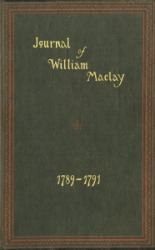
The Pennsylvania legislature elected the nation's first two senators, William Maclay and Robert Morris. The election of Maclay proved historically important because he was the only senator in the First Congress to keep a diary at a time when all Senate sessions were held behind closed doors.
1789
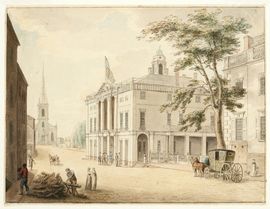
The Senate convened for the first time at Federal Hall in New York City. Pennsylvania's senators, William Maclay and Robert Morris, both presented credentials and took their seats. Because only eight senators were present, however, there were not enough to constitute a quorum. The body was forced to adjourn each day until April 6, when it achieved its first quorum of 12 members, out of the eligible 22.
1789

Senators drew lots to determine the three classes of senators. William Maclay was assigned to Class 1 (with a two-year term to expire in 1791), while Robert Morris was assigned to Class 3 (with a six-year term to expire in 1795).
1790
_congress_hall_exterior_l.jpg)
Following the removal of the seat of government from New York City, the Senate convened for the first time at Congress Hall in Philadelphia.
1793
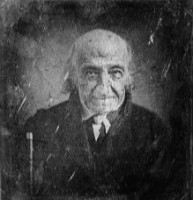
Albert Gallatin, a Jeffersonian Republican, presented his credentials as senator-elect and was seated. On that same day, the Senate received a petition alleging that the Swiss-born Gallatin had not been a citizen of the United States for the required 9 years, triggering the Senate's first contested election inquiry. On Feb. 28, 1794, a Federalist majority in the Senate declared his election void.
1794
For the first time the Senate voted to open its doors to the public. The catalyst for this change was the inquiry into the election qualifications of Albert Gallatin. Nine days after agreeing to this novel experiment, the Senate authorized the construction of a public gallery and the doors of the Senate opened for good on December 9, 1795.
1800
_1800_capitol_wing_l.jpg)
The Senate adjourned for the last time in Philadelphia's Congress Hall before moving to the Capitol in the District of Columbia.
1822
Walter Lowrie of Butler became chairman of the Senate Committee on Finance, serving until 1823.
1825
Former senator Walter Lowrie was elected secretary of the Senate, serving until 1836.
1829

William Marks of Pittsburgh became chairman of the Senate Committee on Agriculture, serving until 1831.
1832
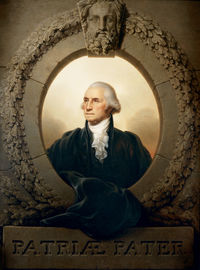
The Senate passed a resolution directing the purchase of a porthole portrait of George Washington, by Philadelphia artist Rembrandt Peale, to hang in the Senate Chamber (now the Old Senate Chamber).
1832

William Wilkins of Pittsburgh became chairman of the Senate Committee on the Judiciary, serving until 1833. On December 16, 1833, he became chairman of the Senate Committee on Foreign Relations, serving until 1834.
1836

James Buchanan of Lancaster became chairman of the Senate Committee on Foreign Relations, serving until 1841.
1845

Former senator George M. Dallas presided over the Senate as the 11th vice president of the United States.
1845

Daniel Sturgeon of Uniontown became chairman of the Senate Committee on Agriculture, serving until 1851.
1851
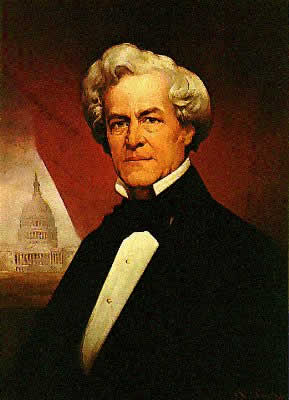
President Millard Fillmore appointed Thomas U. Walter of Philadelphia as architect of the Capitol, in charge of the Senate and House wings and the new Capitol dome. Walter served until 1865.
1857
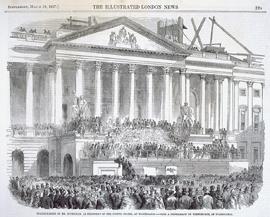
Former Pennsylvania senator James Buchanan was inaugurated as the 15th president of the United States, and served until 1861.
1857

Simon Cameron of Harrisburg took his oath and became Pennsylvania's first Republican senator. Cameron had previously served in the Senate as a Democrat (1845?1849). Two days after he took his seat, the Democratic-controlled Senate received a petition from 69 members of the Pennsylvania legislature protesting Cameron's election. The Senate Committee on the Judiciary investigated but found no evidence that the election was improper.
1867
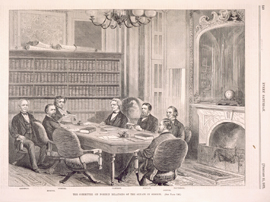
A senator for the third time, Simon Cameron became chairman of the Committee on Agriculture, a position he held until 1871, when he became chairman of the Committee on Foreign Relations. He chaired that committee until 1877.
1877

James Donald Cameron of Harrisburg was elected to succeed his father in the Senate; James Donald Cameron served from 1877 to 1897; his father, Simon Cameron, served from 1845 to 1849, 1857 to 1861, and 1867 to 1877.
1883
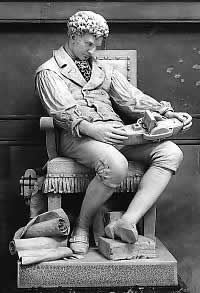
A statue of Robert Fulton, developer of the steam boat, sculpted by Howard Roberts, was placed in the Capitol as the first of Pennsylvania's contributions to the National Statuary Hall Collection.
1884
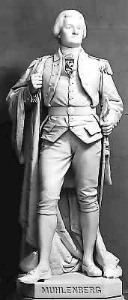
A statue of John Peter Gabriel Muhlenberg, a former representative and senator from Pennsylvania, sculpted by Blanche Nevin, was placed in the Capitol as Pennsylvania's second contribution to the National Statuary Hall Collection.
1888
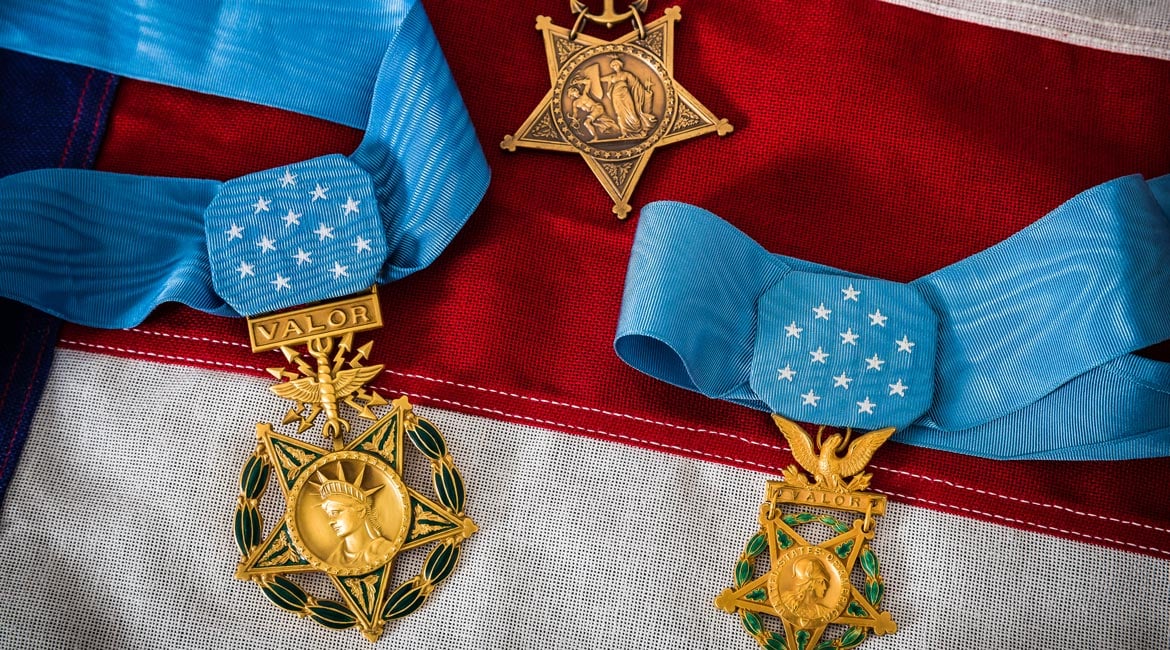
Senator Matthew Quay of Beaver was awarded the Congressional Medal of Honor for voluntarily resuming duty, although out of active service, on the eve of the Battle of Fredericksburg, Virginia, December 13, 1862.
1894
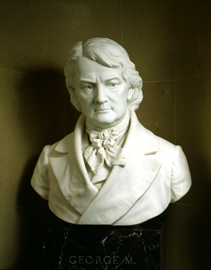
As part of a collection honoring the vice president's role as president of the Senate, a marble bust of George M. Dallas was installed in a niche at the gallery level of the Senate Chamber.
1897

Senator Matthew Quay conducted a one-man filibuster in an attempt to prevent a lowering of the price the government paid for armor plate (manufactured in his state), calling off the filibuster after learning that the House had agreed to the Senate's rate change.
1899
The credentials of Senator Matthew Quay were questioned after he was appointed to another term in the absence of a vote by the state legislature. The Committee on Privileges and Elections investigated the matter and on April 24, 1900, the Senate voted 33 to 32 against seating Quay. In January 1901 the Pennsylvania legislature reelected Quay, who returned to the Senate and served until his death in 1904.
1907

Philander Knox of Pittsburgh became chairman of the Senate Committee on Rules (today's Committee on Rules and Administration), serving until 1909. He again chaired the committee from 1919 to 1921.
1911

Boies Penrose of Philadelphia became chairman of the Senate Committee on Finance, serving until 1913, and again from 1919 until his death in 1921.
1914
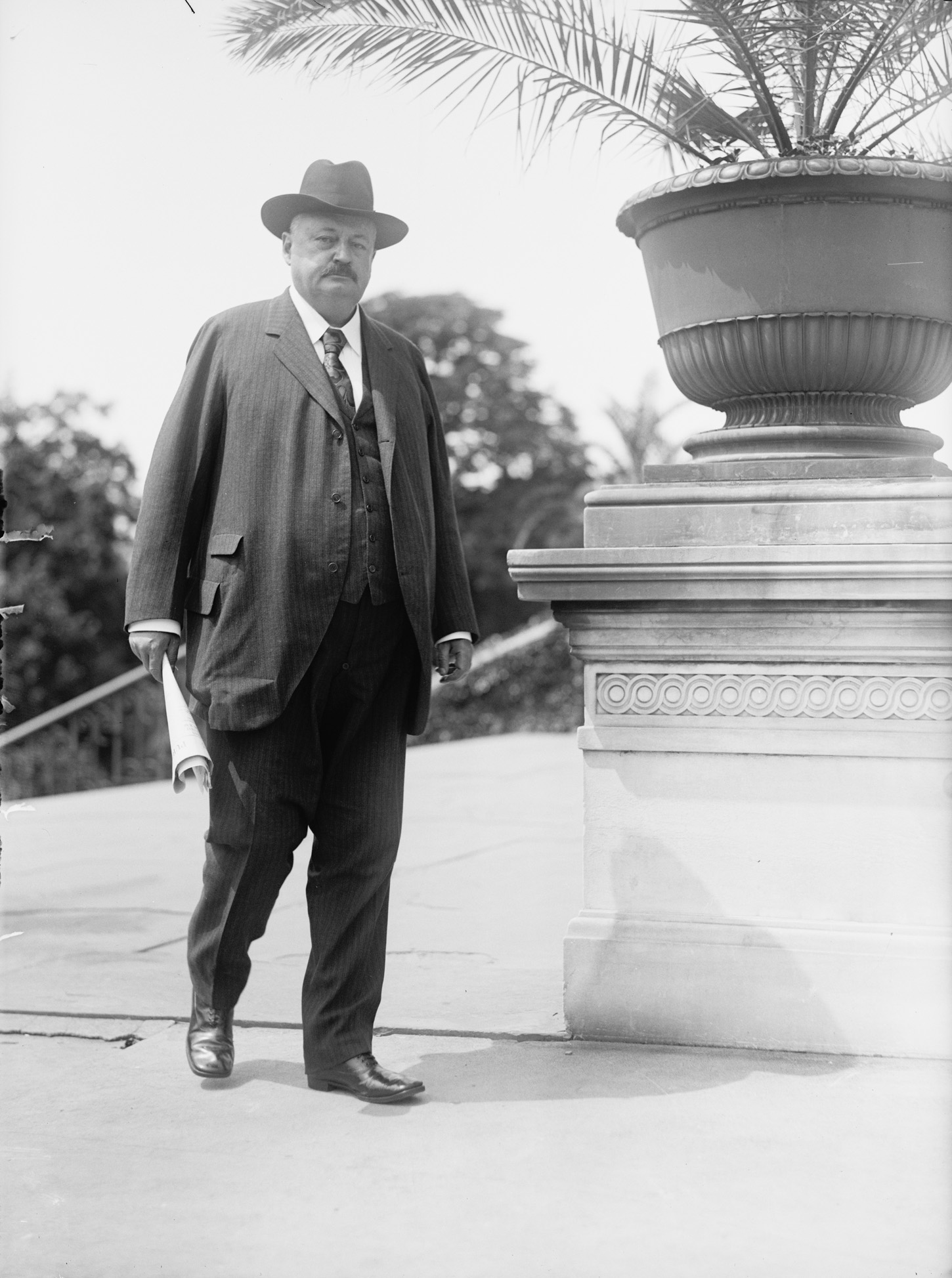
Reelected to his third term, Boies Penrose became the first directly elected senator in Pennsylvania following the adoption of the Seventeenth Amendment to the Constitution in 1913.
1927

David Reed of Pittsburgh became chairman of the Senate Committee on Military Affairs (precursor to today's Armed Services Committee), serving until 1933.
1929

By a vote of 58 to 22, the Senate declared that William S. Vare of Philadelphia was not entitled to his Senate seat, marking the first contested senatorial election in which no candidate was seated after a recount. The Pennsylvania governor then appointed Joseph R. Grundy of Bristol to fill the vacant seat.
1929

The Senate agreed to seat Joseph R. Grundy, despite charges of his role in improper campaign financing in Pennsylvania elections. Although seated, he was defeated in the Republican primary and served for only a year.
1948

Senator Francis J. Myers of Philadelphia was elected Democratic whip, effective January 20, 1949. He served as whip until 1951.
1963

Senator Joseph S. Clark of Philadelphia published The Senate Establishment, calling for institutional reforms; in 1964 he followed it with Congress: The Sapless Branch.
1969

Hugh D. Scott, Jr., of Philadelphia was elected Republican whip by the Conference. He became the minority leader in September of that year, following the death of Everett McKinley Dirksen, and served until 1977.
1972
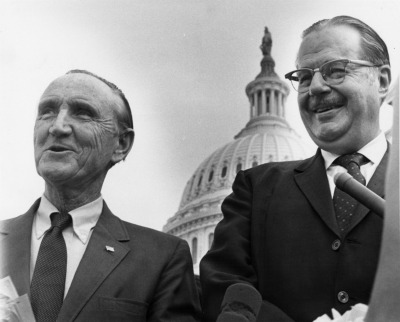
Republican leader Hugh Scott and Democratic majority leader Mike Mansfield led the first congressional visit to the People's Republic of China, meeting with high-level Chinese leaders during the 16-day trip.
1976

California governor Ronald Reagan selected Pennsylvania senator Richard S. Schweiker of Worcester as his potential running mate, but he lost the Republican presidential nomination to the incumbent, Gerald R. Ford. When Reagan won the presidency four years later, Schweiker served as his secretary of health and human services, from 1981 to 1983.
1984
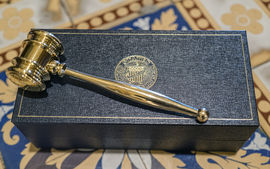
Senator Arlen Specter received the Golden Gavel Award for presiding over the Senate for 100 hours in a single session.
1992

Senator Harris Wofford of Montgomery County and later Bryn Mawr read George Washington's Farewell Address on the floor of the Senate, a tradition dating to 1862.
1995
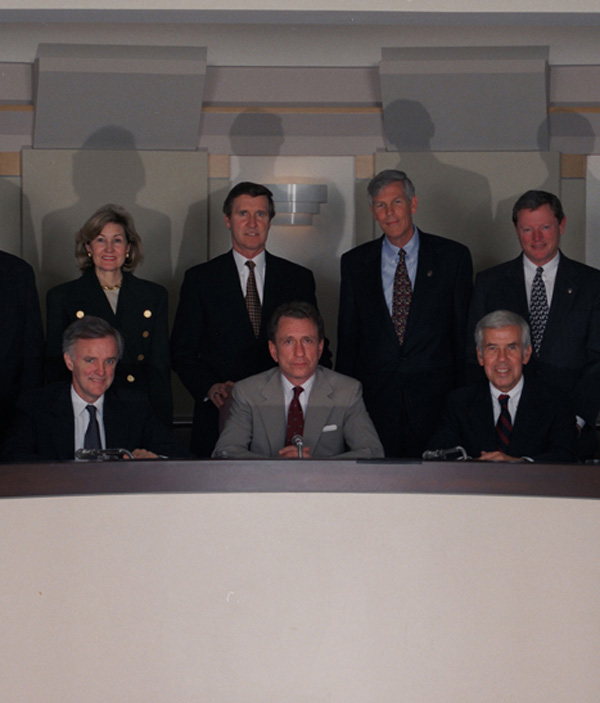
Arlen Specter became chairman of the Senate Select Committee on Intelligence, serving until 1997. He served as chairman of the Senate Committee on Veterans' Affairs from 1997 to 2001, and again from 2003 to 2005. He later served as chairman of the Senate Committee on the Judiciary from 2005 to 2007.
1995

Senator Richard J. Santorum of Mount Lebanon received the Golden Gavel Award for presiding over the Senate for 100 hours in a single session.
2001

Richard J. Santorum was elected chairman of the Republican Conference, serving until 2007.
2005

Arlen Specter became the longest-serving senator from Pennsylvania, having served 9,069 days (24 years, 9 months, and 29 days). He surpassed Boies Penrose, who served from 1897 to 1921.
2007

Senator Robert (Bob) Casey, Jr., of Scranton received the Golden Gavel Award for presiding over the Senate for 100 hours in a single session.
2009

Senator Arlen Specter switched from the Republican Party to the Democratic Party. He was defeated in the June 2010 Democratic primary for his seat by Representative Joe Sestak. Sestak eventually lost the election to Republican candidate Patrick J. Toomey.
2015
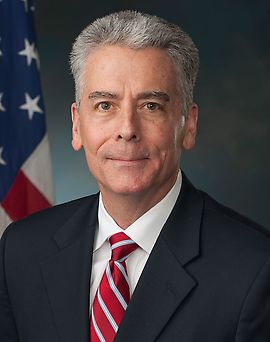
Pennsylvania native Frank J. Larkin was elected to serve as the Senate's 40th sergeant at arms. He served in that position until April 2018.
2021
Senator Robert (Bob) Casey, Jr., became the chairman of the Senate Special Committee on Aging, a position he held until January 3, 2025.